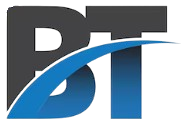Looking at our surroundings, we might be reminded of the incredible advancements we have made in technology. One of the most significant developments in recent years is the rise of artificial intelligence (AI) in the workplace.
AI is no longer just a word mouth , it’s a reality that’s transforming the way we work. From chatbots to virtual assistants, AI-powered tools are increasingly being used to automate tasks, enhance productivity, and improve efficiency.
But what does this mean for the job market? Will AI replace human workers, or will it create new opportunities for growth and development? In this article, we’ll explore the impact of AI on the job market and what it means for workers, employers, and the future of work.
The Benefits of AI in the Workplace
Before we look into the potential challenges of AI in the workplace, let’s talk about the benefits. AI can:
- AI can take care of mundane tasks, freeing up human workers to focus on more complex and creative tasks.
- AI-powered tools can help workers complete tasks more efficiently, leading to increased productivity and better work-life balance.
- AI can analyze large amounts of data, providing insights that can guide business decisions and drive growth.
The Challenges of AI in the Workplace
While AI offers many benefits, it also poses some challenges. One of the biggest concerns is job displacement. As AI takes over routine tasks, there’s a risk that some jobs will become obsolete in the future.
However, that’s not the end. While AI may replace some jobs, it will also create new ones. In fact, a report by the World Economic Forum estimates that by 2030, 75 million jobs will be displaced by automation, but 133 million new jobs will emerge.
The Kind of Jobs of the Future
So, what kinds of jobs will emerge in the age of AI? Here are a few examples:
- AI developer: As AI becomes more prevalent, the demand for developers who can create and implement AI-powered solutions will grow.
- Data analyst: With the increasing use of big data and analytics, data analysts will be needed to interpret and make sense of the data.
- Digital consultant: As companies undergo digital transformation, consultants will be needed to guide them through the process.
- Mental Health Professionals: With the advancement in AI , there’s need for people who can effectively help depressed individuals. This is because it has been predicated that by 2030, the rate of depressed individuals will hit the roof.
- Digital marketers: Experts that can effortlessly use use the digital space to achieve several goals such as visibility, sales and productivity.
How To Prepare for the Future of Work
So, what can you do to prepare for the future of work? Here are a few tips:
- Upskill and reskill: Invest in courses and training programs that will help you develop the skills you need to thrive in an AI-driven workplace.
- Stay adaptable: Be open to new technologies and willing to learn new skills.
- Focus on human skills: While AI may be able to perform certain tasks especially routine tasks, it’s not yet able to replicate human skills like empathy, creativity, and critical thinking.
- Collaboration Over Competition: Learn team work and master the skill of collaboration. With collaboration, you would be able to achieve greater feats than working alone or in competition.
Conclusion
The rise of AI in the workplace is a reality that we can’t ignore. While it poses some challenges, it also offers many benefits. We have listed discussed this in details and we believe that you are prepared for what the future holds.
Brace up for what the future holds and fasten your seat belts for an AI-driven world. Feel free to share your thoughts in the comments section below.
